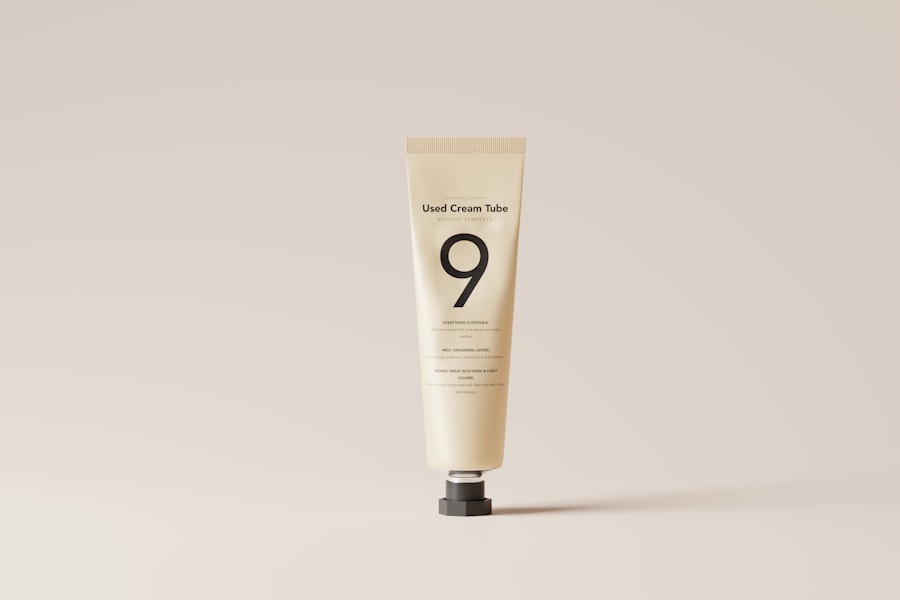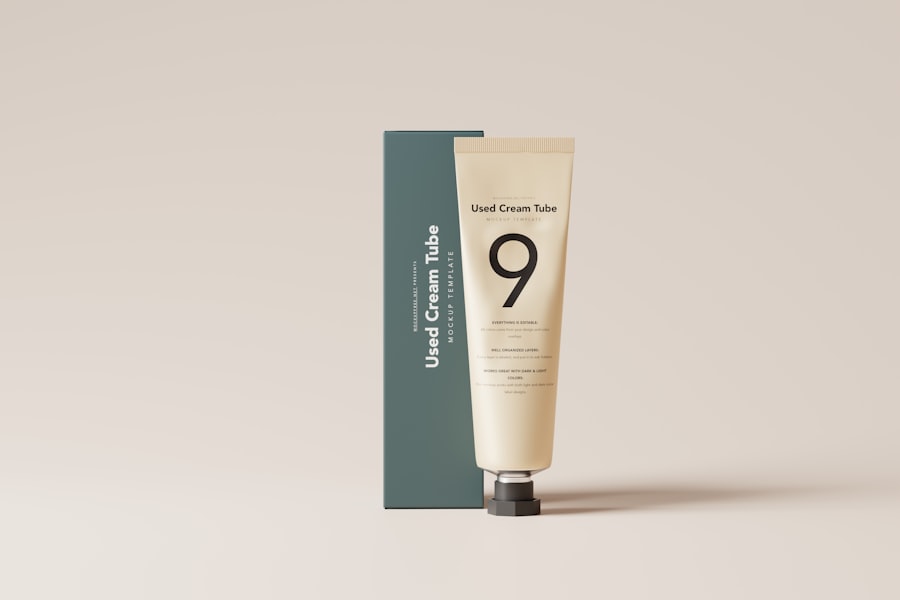Aftercare is a crucial aspect of any cosmetic procedure or skin treatment, and understanding its importance can significantly enhance your results. When you undergo a treatment, your skin may be sensitive and vulnerable, requiring special attention to ensure proper healing. The aftercare process is designed to support your skin as it recovers, minimizing the risk of complications and maximizing the benefits of the procedure.
By following a structured aftercare routine, you can help your skin regain its natural balance and appearance more quickly. You should recognize that the aftercare process varies depending on the type of treatment you have received. For instance, if you’ve had a chemical peel, your skin may peel and flake as it heals, while laser treatments might leave your skin red and swollen.
Understanding the specific needs of your skin post-treatment will empower you to take the right steps for optimal recovery. This knowledge not only helps in achieving the desired results but also fosters a sense of confidence in your skincare journey.
Key Takeaways
- Proper aftercare is crucial for the healing process of any skin treatment.
- Soothe irritated skin by using gentle, non-irritating products and avoiding hot water.
- Always protect your skin from the sun by using sunscreen and wearing protective clothing.
- Keep your skin hydrated and moisturized to promote healing and prevent dryness.
- Avoid harsh chemicals and exfoliants that can further irritate the skin.
Tips for Soothing Irritated Skin
Soothing with Cool Compresses
One of the most effective ways to calm irritation is by applying a cool compress. You can use a clean cloth soaked in cool water or even ice wrapped in a towel. Gently pressing this against your skin can provide instant relief from redness and discomfort.
Calming Ingredients for Irritated Skin
Additionally, consider using products that contain calming ingredients like aloe vera or chamomile, which are known for their soothing properties.
Avoid using products with strong fragrances or active ingredients that could exacerbate irritation. Instead, opt for mild cleansers and hydrating serums that focus on restoring your skin’s barrier. You might also want to incorporate a fragrance-free moisturizer to lock in hydration and create a protective layer over your skin. By prioritizing gentleness in your routine, you can help your skin recover more effectively.
Proper Sun Protection

Sun protection is an essential component of aftercare that should never be overlooked. After undergoing any skin treatment, your skin becomes more susceptible to sun damage, which can lead to complications such as hyperpigmentation or prolonged redness. Therefore, applying a broad-spectrum sunscreen with an SPF of at least 30 is crucial.
Make it a habit to apply sunscreen every morning, even on cloudy days, as UV rays can penetrate through clouds and cause harm. In addition to using sunscreen, consider wearing protective clothing and seeking shade whenever possible. A wide-brimmed hat can shield your face from direct sunlight, while sunglasses can protect your eyes and the delicate skin around them.
Remember that sun protection is not just a one-time effort; it should be an integral part of your daily routine, especially during the healing phase after any treatment. By taking these precautions, you can safeguard your skin and promote a healthier recovery.
Hydrating and Moisturizing
| Product | Hydration Level | Moisture Retention |
|---|---|---|
| Lotion A | High | Medium |
| Cream B | Medium | High |
| Serum C | High | High |
Hydration plays a vital role in the aftercare process, as it helps maintain your skin’s elasticity and overall health. After a treatment, your skin may feel dry or tight, making it essential to replenish moisture levels. Drinking plenty of water throughout the day is one way to support hydration from within.
Additionally, consider incorporating hydrating serums or essences into your skincare routine that contain ingredients like hyaluronic acid or glycerin, which attract moisture to the skin. Moisturizing is equally important in the aftercare process. A good moisturizer not only hydrates but also helps repair the skin barrier, which may be compromised after treatment.
Look for products that are rich in emollients and free from irritants.
By prioritizing hydration and moisturization, you can enhance your skin’s recovery and achieve a radiant complexion.
Avoiding Harsh Chemicals and Exfoliants
In the aftermath of any cosmetic procedure, it’s crucial to avoid harsh chemicals and exfoliants that could irritate your sensitive skin. Many skincare products contain active ingredients like retinoids or alpha hydroxy acids (AHAs) that can be too aggressive during the healing phase. Instead of reaching for these potent formulations, focus on gentle products that are specifically designed for post-treatment care.
Look for soothing ingredients like ceramides or peptides that will nourish your skin without causing further irritation. Additionally, refrain from using physical exfoliants such as scrubs or brushes for at least a few weeks after your treatment. Your skin needs time to heal, and exfoliating too soon can disrupt this process and lead to complications.
Instead, allow your skin to naturally shed dead cells while keeping it clean and hydrated. By avoiding harsh chemicals and exfoliants during this critical period, you can support your skin’s recovery and promote a smoother texture.
Managing Any Discomfort

Experiencing discomfort after a cosmetic procedure is not uncommon, but managing it effectively is key to ensuring a smooth recovery. If you find yourself feeling uncomfortable or in pain, over-the-counter pain relievers like ibuprofen or acetaminophen can provide relief. However, always consult with your healthcare provider before taking any medication to ensure it’s appropriate for your situation.
In addition to medication, consider incorporating soothing practices into your routine. Gentle facial massages can help improve circulation and reduce tension in the treated area. You might also find relief through relaxation techniques such as deep breathing or meditation, which can help alleviate stress and promote overall well-being during the healing process.
By actively managing any discomfort you experience, you can create a more positive recovery experience.
Monitoring for Any Adverse Reactions
As you navigate through the aftercare process, it’s essential to keep an eye out for any adverse reactions that may arise. While most people experience mild side effects like redness or swelling, some individuals may encounter more severe reactions such as blistering or prolonged irritation. If you notice any unusual changes in your skin or if symptoms worsen instead of improving, don’t hesitate to reach out to your healthcare provider for guidance.
Documenting any changes in your skin can also be beneficial during this time. Consider keeping a journal where you note down how your skin feels each day and any products you’ve used. This information can help you identify patterns or triggers that may be contributing to adverse reactions.
By staying vigilant and proactive about monitoring your skin’s response, you can address any issues promptly and ensure a smoother recovery.
Long-Term Maintenance for Lasting Results
Once you’ve successfully navigated the aftercare process, it’s time to focus on long-term maintenance for lasting results. Establishing a consistent skincare routine tailored to your skin type is essential for preserving the benefits of your treatment. Incorporate products that promote hydration, protection, and nourishment into your daily regimen to maintain healthy skin over time.
Additionally, consider scheduling regular follow-up appointments with your skincare professional to assess your progress and make any necessary adjustments to your routine. They can provide valuable insights into new treatments or products that may enhance your results further. By committing to long-term maintenance and staying informed about the best practices for skincare, you can enjoy beautiful, healthy skin for years to come.
In conclusion, understanding the aftercare process is vital for achieving optimal results from any cosmetic treatment. By following these guidelines—soothing irritated skin, protecting against sun damage, hydrating effectively, avoiding harsh chemicals, managing discomfort, monitoring reactions, and committing to long-term maintenance—you empower yourself to take control of your skincare journey. With patience and diligence, you can enjoy the radiant complexion you desire while ensuring the health of your skin remains a top priority.
After undergoing laser hair removal treatment, it is crucial to follow proper aftercare instructions to ensure optimal results. One helpful resource for at-home aftercare tips is the article “Fashion at Home: 5 Tips for Laser Hair Removal Aftercare” on the In Laser Hair Removal website. This article provides valuable advice on how to care for your skin post-treatment, including tips on moisturizing, avoiding sun exposure, and managing any potential side effects. By following these guidelines, you can help maintain the smooth, hair-free results of your laser hair removal treatment.
FAQs
What is laser hair removal?
Laser hair removal is a cosmetic procedure that uses a concentrated beam of light (laser) to remove unwanted hair. The laser targets the pigment in the hair follicles, damaging them and inhibiting future hair growth.
What is aftercare for laser hair removal at home?
Aftercare for laser hair removal at home typically involves keeping the treated area clean and protected from sun exposure. It may also include using soothing creams or gels to alleviate any discomfort or redness.
How long does it take for the skin to recover after laser hair removal?
The skin may take a few days to a week to fully recover after laser hair removal. It is normal to experience redness, swelling, and mild discomfort immediately after the procedure, but these symptoms should subside within a few days.
Can I shave or use hair removal creams after laser hair removal?
It is generally recommended to avoid shaving or using hair removal creams on the treated area for a few days after laser hair removal. This allows the skin to recover and reduces the risk of irritation.
Is it safe to apply makeup or skincare products after laser hair removal?
It is best to avoid applying makeup or skincare products to the treated area immediately after laser hair removal, as the skin may be sensitive and prone to irritation. It is important to follow the specific aftercare instructions provided by the practitioner or clinic.




